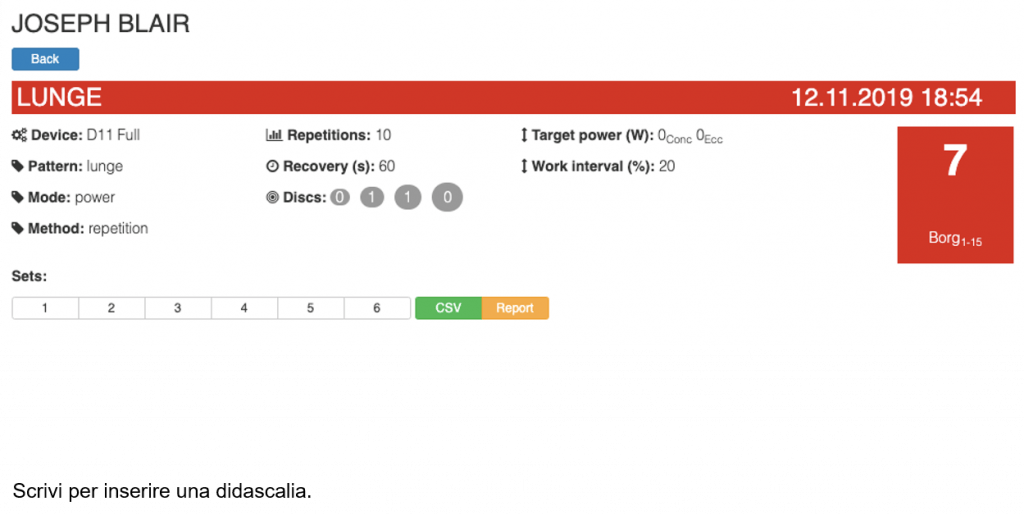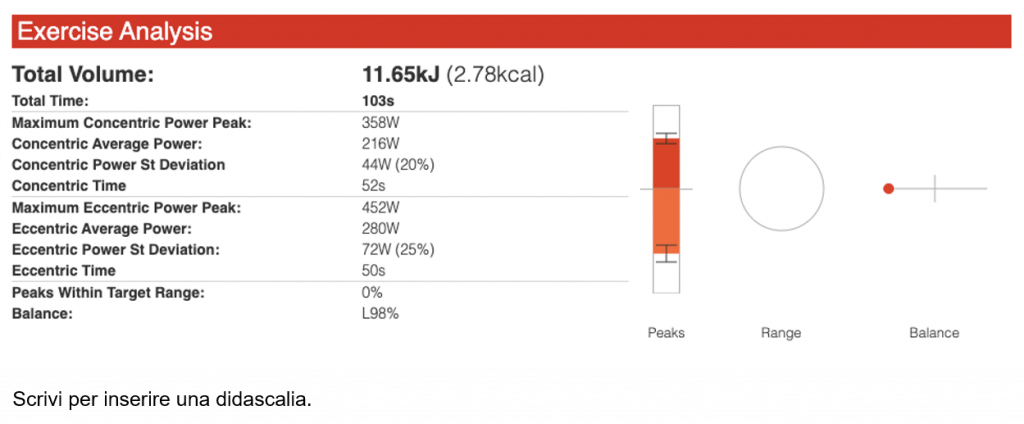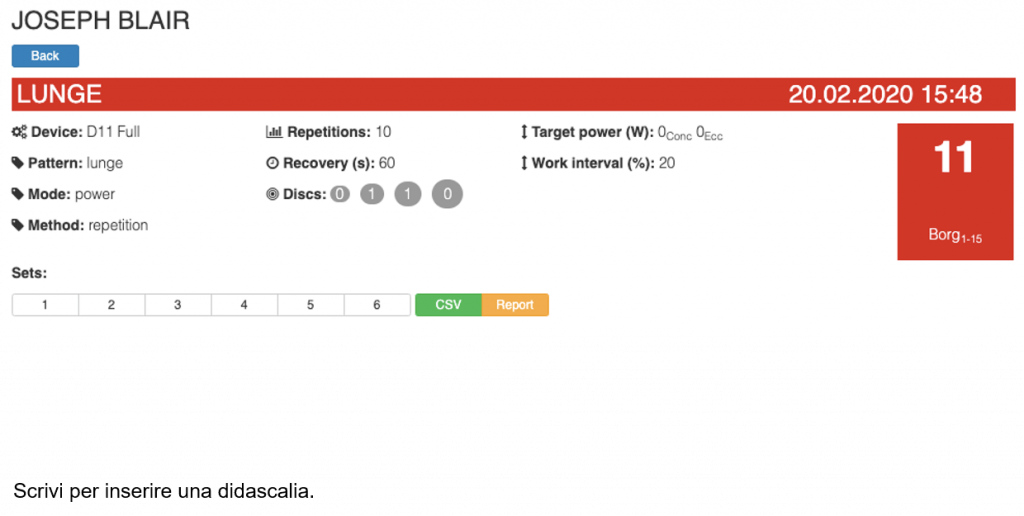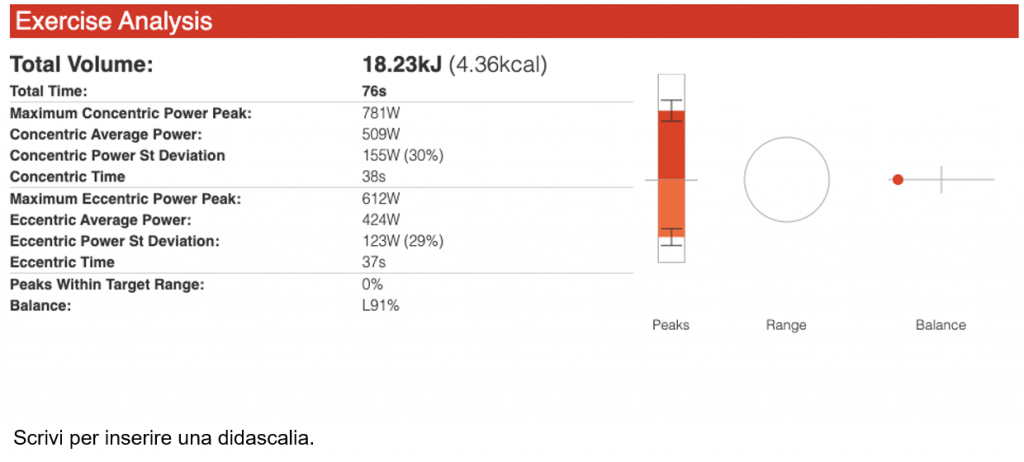INTRODUCTION
- This analysis is focused on physical training of DD, a basketball player of the Youth Academy who has been included in the Main Team during this season.
- The athelte has started to train again after a period of inactivity, he is 19, 196cm , 79,2 kg ha 19 anni, He needs to improve his muscular structure in order to be able to sustain the trainings with a Professional Basketball Team, playing in Italian A2.
- Following a first phase of adapting to training using with small tools (August-September), the athelte carried out a first cycle of hipertrophy with overloads (October-November) and after that, he has carried out a second phase in whichit was also integrated isoinertial training for lower limbs with overloads (November – February).
SUBJECT
| Gender | Male |
| Age | 20 |
| Job | Basketball Player |
| Lifestyle |
Student |
PROBLEM / OBJECTIVE TO BE ACHIEVED
Improving athlete’s physical performances in three phases:
- Adapting to trainings for strength
- Hipertrophy
- Hipertrophy and power
TRAINING PLAN
| PHASE 1 | August – September |
| Goal | Adapting |
| Exercises | Body Weight Squat, 1 Leg Squat to Box, Hip Thruster, Hip Hinge |
| Weekly sessions | 4 |
| Sets and repetitions | 3×12-15 |
| PHASE 2 | October – November |
| Goal | Hipertrophy |
| Exercises | Goblet Squat, 2 Dumbbells Bulgarian Squat, Plate Hip Thruster, Kettlebell Deadlift |
| Weekly sessions | 4 |
| Sets and repetitions | 3×10 |
| PHASE 3 | December – February |
| Goal | Hipertrophy and power |
| Exercises | Barbell Squat, Isoinertial Split Squat, Barbell Hip Thruster, Barbell Deadlift |
| Weekly sessions | 3 |
| Sets and repetitions | 3×10 |
PROTOCOL
| Device | D.Full |
| Test | Split Squat |
| Tool | Integral Harness |
| Disk | Medium + Large |
| PROTOCOL | |
| N° of weeks | 12 |
| Times per week | 1 |
| Sets | 3 |
| Repetitions | 10+10 |
RESULTS – NOVEMBER 2019
RESULTS – FEBRUARY 2020
CONCLUSIONS
From November to February with one isoinertial training session per week, performed before the main basketball trainings with the team:
Total Volume from 11.65J to 18.23J
During the concentric phase
Power peak from 358W to 781W
Power average from 216W to 509W
During the eccentric phase
Power peak from 452W to 612W
Power average from 280W to 424W
CONCLUSIONS – STANDARD DEVIATION
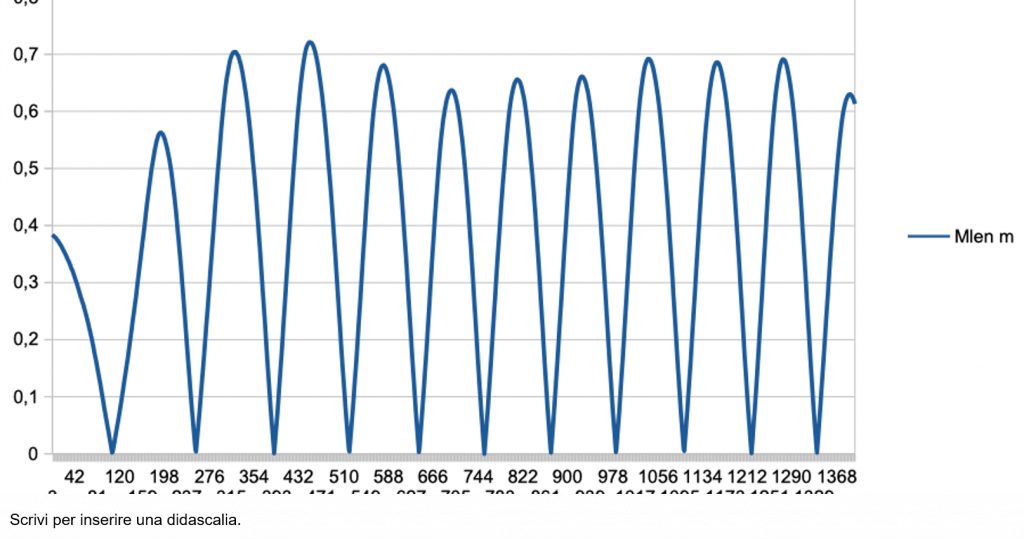
Desmotec allowed me to focus on training lower limbs power, during a regular cycle of strength wit overloads.
In addition, it allowed me to monitor the Watt expressed during every repetitions in both concentric and eccentric phases, in order to verify eventual improvements in peaks and averages reached by the subject.
The Desmotec software allows to monitor the standard deviation: in this particular case it was around 20%. It is possible to analyze the execution of the exercise in case the subject needs to learn it or improve the support.
